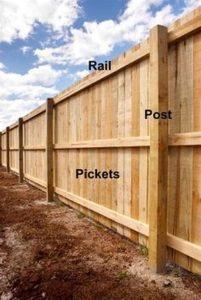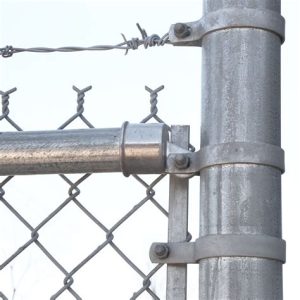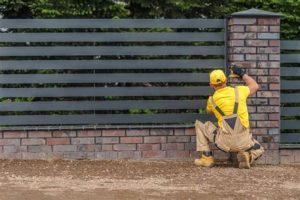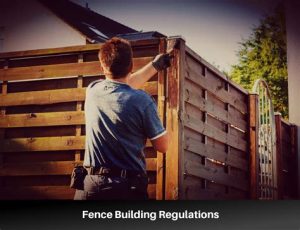Explore zoning laws, the significance of fence permits, types of restrictions, the permit acquisition process, and common pitfalls to avoid for successful compliance.When it comes to enhancing your property with a fence, understanding zoning laws is an essential step that can save you time, money, and frustration. Zoning laws are regulations set by local governments that dictate how land can be used and developed, including the structures that can be built on it. Obtaining a fence permit is crucial not only for adhering to these laws but also for ensuring that your fence complements your property and complies with neighborhood standards. In this blog post, we’ll explore the fundamentals of zoning laws, the significance of fence permits, the various types of zoning restrictions you may encounter, the steps to successfully navigate the permit application process, and common pitfalls to avoid. By equipping yourself with this knowledge, you’ll be prepared to tackle your fencing project with confidence.
What are Zoning Laws?
Zoning laws are regulations set by local governments to dictate how land can be used in specific areas. These laws are essential for urban planning and development, ensuring that the land is utilized efficiently and sustainably. They help establish the boundaries of residential, commercial, industrial, and agricultural areas, guiding where certain types of buildings and activities can take place.
The primary purpose of zoning laws is to protect the health, safety, and welfare of the community. For example, residential zones are designed to provide safe living environments free from disruptive commercial activities. Conversely, commercial zones aim to encourage business growth while minimizing the impact on nearby residential areas. Additionally, zoning laws can address environmental concerns and contribute to the overall aesthetic of a neighborhood.
Each locality may have its own set of zoning laws, which can vary widely depending on the community’s needs and priorities. Property owners planning to build, alter, or even put up a fence must be aware of these regulations, as they can affect property values, neighborhood dynamics, and even legal liabilities.
Importance of Fence Permits
Obtaining a fence permit is a crucial step for homeowners and property owners who wish to construct a fence on their property. These permits are not merely bureaucratic hurdles but serve several vital purposes that are essential for the community and property owner alike.
Firstly, fence permits ensure that the structure complies with local zoning laws. These laws vary by location and often dictate the height, style, and placement of fences. By obtaining the necessary permits, you avoid potential conflicts with neighbors and legal disputes arising from non-compliance. It’s important to note that different areas may have specific restrictions based on neighborhood characteristics, which the permit process addresses.
Secondly, securing a fence permit can promote safety and property values. Well-maintained, compliant fences can enhance the visual appeal of a neighborhood, while also providing necessary security for pets and children. Lastly, failure to obtain a fence permit may result in fines or the enforced removal of the fence, leading to wasted time and resources. Thus, understanding the importance of fence permits can significantly benefit property owners, enhancing their living environment and maintaining good relations within their community.
Types of Zoning Restrictions
When it comes to understanding zoning restrictions, it’s essential to recognize that these regulations govern how land can be used and developed. Depending on the location, zoning laws can vary significantly, and they typically fall into several categories.
| Type of Zoning | Description |
|---|---|
| Residential Zoning | Restricts land use to housing and typically includes provisions for the number of dwellings that can be built. |
| Commercial Zoning | Permits businesses to operate, often defining the types of businesses allowed in specified areas. |
| Industrial Zoning | Designates areas for manufacturing and industrial operations, often with stricter regulations regarding noise and pollution. |
| Agricultural Zoning | Supports farming activities and may restrict non-agricultural development to protect farmland. |
| Mixed-Use Zoning | Allows for a combination of residential, commercial, and sometimes industrial uses, promoting a more integrated community. |
Additionally, each type of zoning restriction can have various requirements relating to setbacks, height limitations, and specific uses that may or may not be permitted. For example, residential zones might restrict the height of fences, while commercial zones could have more lenient guidelines.
Understanding these zoning restrictions is crucial, especially for property owners looking to build or make alterations, such as installing a fence.
Process of Obtaining Fence Permit
Obtaining a fence permit is a crucial step for homeowners who wish to erect a fence on their property. The process can vary depending on local regulations, but generally follows a few standard steps. This guide will walk you through the essential stages involved in applying for a fence permit.
First, it is important to check local zoning laws. Most municipalities have specific guidelines regarding the height, material, and location of fences. This often includes the distance the fence must be set back from property lines. Reach out to your local zoning office or check their website to find the specific requirements in your area.
Once you are aware of the local regulations, the next step is to prepare the necessary documentation. This typically includes submitting a site plan or a property survey indicating where the fence will be located. You may also need to provide details about the fence design, such as the type of materials you intend to use. After preparing the documents, submit your permit application along with any required fees.
After submitting your application, there is usually a review period during which local officials assess your request. This may take a few days to several weeks, depending on the jurisdiction. If your application is approved, you will receive your fence permit, allowing you to begin construction. Remember, failing to obtain the necessary permit can result in fines or requiring you to remove your fence, so always ensure you follow these steps diligently.
Common Mistakes to Avoid
When navigating the complexities of zoning laws and the requirements for fence permits, it’s crucial to be aware of common mistakes that can lead to complications, fines, or even removal of your fence.
- Failing to Research Local Regulations: Each municipality may have different zoning restrictions, and assuming they are the same as neighboring areas can be a costly mistake.
- Neglecting to Obtain Necessary Permits: Skipping the permit application can result in legal issues. Always secure a fence permit before starting your project.
- Overlooking Property Lines: Misjudging your property boundaries can lead to disputes with neighbors and possible legal actions.
By taking the time to understand your local zoning laws and obtaining necessary permits, you can avoid these common errors. Thorough research and planning are key to a successful fencing project.
Additionally, consult with local zoning authorities if you have questions. They can provide insights and guidance that can help you stay compliant with all regulations.
Remember, diligence in preparation is essential.
Frequently Asked Questions
What are zoning laws?
Zoning laws are regulations set by local governments that dictate how properties in specific geographic zones can be used, including aspects like building height, density, and type of structures allowed.
Why are fence permits necessary?
Fence permits are necessary to ensure that the construction of fences complies with local zoning laws and building codes, which can include factors like height, placement, and material used.
How do I find out the zoning laws in my area?
You can find out the zoning laws in your area by visiting your local government office’s website or contacting the zoning office directly for information on regulations that apply to your property.
What common factors are considered in zoning laws for fences?
Common factors considered in zoning laws for fences include the height of the fence, its location relative to property lines, the materials used, and any restrictions for front-facing fences in residential areas.
What are the potential consequences of building a fence without a permit?
Building a fence without a permit can lead to fines, the requirement to remove the non-compliant fence, and complications when selling the property, as unpermitted structures may not pass inspection.
Can I appeal a zoning decision regarding my fence permit?
Yes, you can typically appeal a zoning decision regarding your fence permit by following the appeal process set by your local zoning board, although the specific procedures can vary by location.
Is there a difference in zoning laws for residential and commercial properties?
Yes, there is often a difference in zoning laws for residential and commercial properties. Residential areas may have stricter regulations regarding fence height and appearance, while commercial properties may have more flexibility but must comply with different standards.




